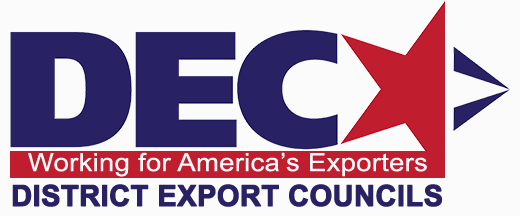Before you get on an airplane and start spending serious money, do a thorough job of market intelligence gathering, and contact the U.S. Commercial Service for their expert guidance.

Planning your business trip overseas
Early in the export process it really helps to visit the target market, to assess opportunities and and decide where to focus your effort. Having a plan in place for the trip insures a productive trip.
Deciding where and when to visit
There are no hard and fast rules about the timing of your trip, but if at all possible you should visit before contracting with agents, distributors or other business partners overseas.
Your market selection, or market selection, or at least a shortlist, should already have been made based on your research, advice from the U.S. Commercial Service, and any serious direct inquiries you have received. Rather than just visiting just one potential customer or agent, you should try to call on several to give you a basis for comparison.
Always leave the most promising meeting until last – when you will be better prepared to evaluate their fit with your needs. Don’t take on more than one or two markets in a single trip. Concentrate the “low hanging fruit” markets.
Plan your trip at least six weeks in advance
The U.S. Commercial Service has experts here and overseas that can can help you plan your visit and make sure it is productive.
One of the best investments you can make to insure a successful trip is to do very thorough advance planning. This will help you see the right potential partners and customers, people that have been briefed and screened ahead of time for both interest and capability.
In scheduling your visit, try to avoid any local holidays or religious festivals that might interfere with your meetings.
When possible, book changeable flights that are scheduled to arrive early in the morning and depart in the evening. Always allow extra time for potential delays going to and from airports, and for meetings that run overtime.
Have all your paperwork in order
The checklist below lists some things you need to prepare in advance. Anticipate that you will be asked about price, volumes and/or capacity, and delivery times. Talk with customs brokers in the US before leaving so you have a good understanding of delivery times and shipping costs. Brainstorm different scenarios (including the workload) with your production team before you leave. This will let you negotiate price and delivery with greater confidence.
Do some serious background reading
First impressions are crucial. If you have never visited a country before and don’t know much about it, scour the Internet and read about it from several different sources. Some excellent sources can be found in the Export-U country web links list. One of the very best sources is the USCS Country Commercial Guide for your target market.
A visit without followup is pointless
Very positive business meetings often produce nothing without appropriate followup. Make sure that within 48 hours of each appointment you send an email thanking each contact for the meeting, providing followup information. If you can’t supply all of the information they need right away, say that you will get back to them by a specific date. This will demonstrate that you are a reliable business partner.
At least 6 weeks before your trip:
1. Check your passport and make sure that it is current. As a general rule there should be at least six months until it expires.
2. Check if you need a visa to enter that country. This information is available on the U.S. State Department website. Visas can take a month or more to arrange – particularly if you need several, and you must send your passport away with each visa application.
3. Discuss visit dates with a USCS trade specialist, to make sure all the planned meetings can be arranged in that time available.
4. Book your flights and hotels. Look for hotels with good business centers and Internet access. The U.S. Embassy in that country can give you recommendations.
5. Make sure that your vaccinations are up-to-date, and buy travel insurance.
Review your in-market entry strategy:
1. Review your general export strategy. Review this plan and perhaps expand it for your specific target market(s).
2. Review your sales proposition, and how it sets your product apart from the competition. You may need to modify it for the specific target market(s). Discuss it concept with your USCS trade specialist.
3. Write down exactly what you want to achieve from this trip – and if possible from each planned meeting.
4. Develop a series of questions for prospective business partners, which might include:
• What role your product or service would play in their business strategy?
• How they would market it?
• What resources they would they commit?
• How they would provide after-sales service?
• The terms of payment?
• Any potential non-disclosure agreement?
Don’t be rushed into an agreement
If overseas agents/distributors see that your company can give them a marketing advantage, they may try to rush you into signing an agreement. But, be very careful, since overseas agreements can be very hard to change or terminate.
If possible, delay signing any final agreement until you have returned home and carefully considered the proposal. You may want to consult your attorney, but be aware that written contracts are often impossible to enforce overseas. Legally enforcing the contract may cost more than the business is worth.
Don’t bribe anyone, anywhere!!!
Bribing or facilitating bribery of a foreign public official is a serious crime under the U.S. Foreign Corrupt Practices Act. In addition, you can be held criminally responsible for bribery by your overseas agents or representatives. It is no defense to claim that bribery is a common practice in a country. Offering anything of value can constitute a bribe, whether cash or non-cash items. The law applies regardless of the outcome; so, be very careful.
